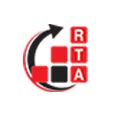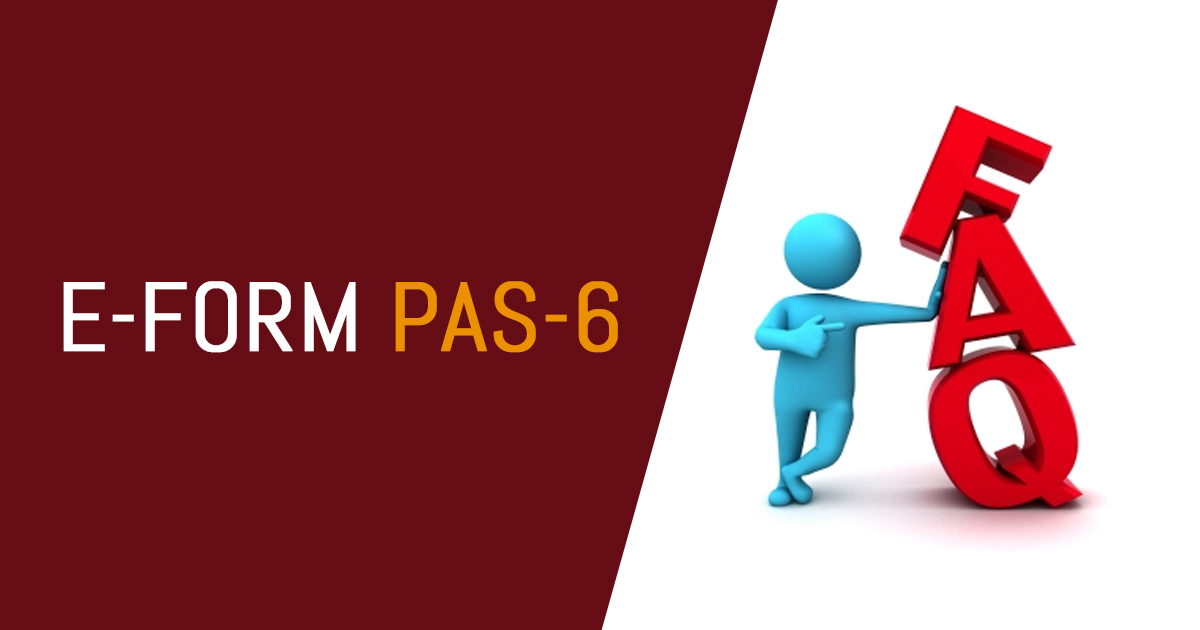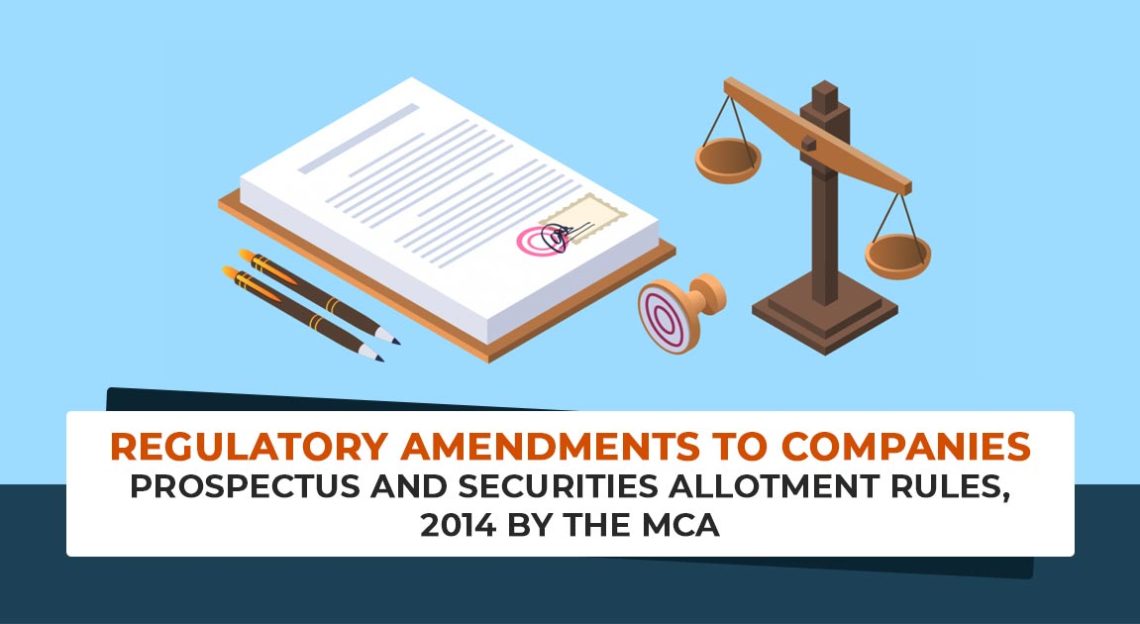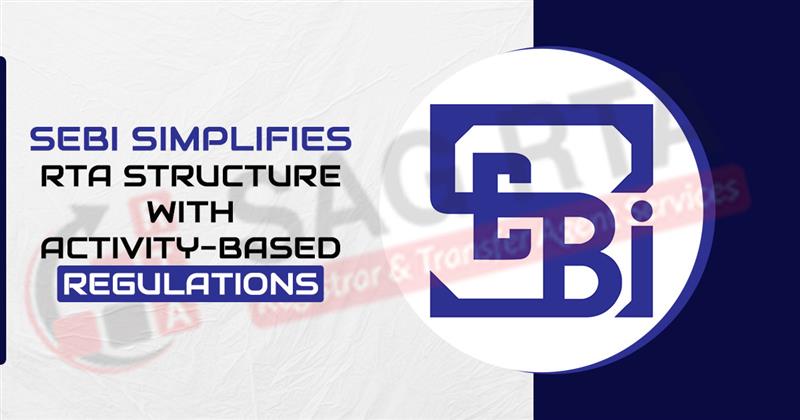Hope you all are doing well during this Pandemic.
The very latest step of the MCA (Ministry of Corporate Affairs) encourages us to get some new compliance after every periodic interval, which also helps us to learn new things each year. Additionally, and even after 6 years of implementation, this new Companies Act, 2013, seems fresh. And, MCA probably won’t even let us get bored. Well, we will go through some of the Form PAS–6-related details.
So, let’s just begin with Frequently Asked Questions (FAQ’s) on deployment of E-Form PAS-6 on MCA.
General Queries for E-form PAS-6
Q.1 What is the purpose behind the incorporation of Form PAS-6?
The major goal of Form PAS-6 is to undergo the reconciliation of the various number securities given (share certificate or Demat credit) match or do not match through providing or paid-up capital. It tries to make sure that there is no more credit of the securities with respect to the provided number of securities and that the Demat process is executed on time.
Q.2 Relevant to furnishing the Form PAS-6 what is the plan?
Under section 29(1) of the company act 2013 “Notwithstanding anything contained in any other provisions of this Act, (a) every company making a public offer, and (b) such other class or classes of companies as may be prescribed; shall issue the securities only in dematerialised form by complying with the provisions of the Depositories Act, 1996 and the regulations made thereunder.”
Moreover, under Section 29(1A) of the Companies Act, 2013, “In case of such class or classes of unlisted companies as may be prescribed, the securities shall be held or transferred only in dematerialized form in the manner laid down in the Depositories Act, 1996 and the regulations made thereunder.”
This comes under the companies which are mentioned in section 9A of the Companies (Prospectus and Allotment of Securities) Rules, 2014, i.e., unlisted public companies. Rule 9A(8) of the Companies (Prospectus and Allotment of Securities) rules 2014 reveals that each and every unlisted public company will furnish the Form PAS-6 through the registrar of the companies via filing the fees as mentioned in companies (Registration Offices and Fees) Rules, 2014 in 60 days from the result of each half-year duly certified through the company secretary in implementing or chartered accountant in execution.
The Form is needed to be furnished for the half-year ended on 30/09/2019 and 30th March every year. Form PAS-6 mentioned on the MCA website on 15th July 2020 and is needed to be furnished in 60 days from the declared date.
Q.3 If the firm has various securities do it need to furnish Form PAS-6?
Yes, Rule 9A of the Companies (Prospectus and Allotment of Securities) Rules, 2014 has been applied for every class of security and in Form PAS-6 only one ISIN can be inserted. Thus for various types and classes of securities various forms are needed to be furnished. Form PAS-6 is devised ISIN can insert. Thus the firm is needed to furnish the Form PAS-6 for every ISIN issued.
Q.4 Which plan of the act and or act developed thereunder are to be investigated despite certifying Form PAS-6 through the professional?
Certification of Form is not only towards the information furnished in Form PAS-6 however it indeed is towards the while companies act 2013, Depositories Act, 1996, and all Rules in respect of dematerialization of Securities. Thus compliances of section 29 of the companies act 2013 rule 9A of the Companies (Prospectus and Allotment of Securities) Rules, 2014, Depositories Act, 1996 along with the regulations filed thereunder which is a concern to Form PAS-6 is to be investigated and reported.
Q.5 For which division the companies are needed to furnish the Form PAS-6?
The firms which are public and unlisted and the subsidiary of the public companies are needed to furnish Form PAS-6. But the government firms, wholly-owned subsidiaries, and Nidhi firms are not listed public companies, and are not needed to furnish the Form PAS-6. Under section 2(52) of the companies act, 2013 which is a listed firm reveals that the firm who have any of its securities listed upon the acknowledged stock exchange.
The Companies (Amendment) Bill, 2020, is to be authorized through the Lok Sabha and Rajya Sabha asked to provide the provision in this section where it authorizes the union government to privilege, towards the SEBI discussion some classes of the firm where it has listed or can be listed for a particular class of securities from acknowledged same towards the listed firms. Upon the change in section 2(52) held good and the central government mentioned the rules with respect to various firms may get divided into the division of ‘unlisted public companies’ that are presently not acknowledged to be unlisted public firms.
Q.6 Is Rule 9A of firms (Prospectus and Allotment of Securities) Rules, 2014 applied for (a) unlisted public company but debt is listed, or (b) private company however debt is listed or (c) unlisted public company and debt is unlisted?
Towards the unlisted public firms the Rule 9A of the Companies (Prospectus and Allotment of Securities) Rules, 2014 is eligible. According to section 2(52) of the companies act 2013, the listed firms mean that the firm owns any of its securities listed. Thus if debt security is listed then these firms (public or private) are not coming under Rule 9A of the firms (Prospectus and Allotment of Securities) Rules, 2014. If the debt and equity is not listed and the firm is a public company then Rule 9A of the firms (Prospectus and Allotment of Securities) Rules, 2014 is suitable.
It is mandatory to see that the mentioned provision (according to them as mentioned in answer to Q6 above) is urged to be mentioned in Section 2(52) of the Companies Act, 2013 (in the definition of a listed company). If the same change in section 2(52) is effective and the central government with respect to this, then this answer might be altered.
Q.7 If the recorded debt firms are required to furnish Form PAS-6?
As per the credential date, the debt list firms are the listed firms in which the procurement of the firms act 2013, thus this is not required to furnish Form PAS-6 through ROC. Thus applicant to the urged amendment under section 2(52) of the companies act, 2013 (which is elaborated in Q6 and Q7 above) this answer might be amended.
Q.8 Is this possible that the debit-listed public firms provide, transfer or hold the equity share in physical form?
The Debt listed firms come beneath Chapter IV of SEBI (LODR) Regulations, 2015. Hence the Debt listed public firms do not come beneath Rule 9A of the firms (Prospectus and Allotment of Securities) Rules, 2014, and comes beneath Regulation 40 of SEBI (LODR) Regulations, 2015, upon the debt listed companies (public or private) there is no limitation to provide the equity shares in physical form.
But the applicant to urge the change under section 2(52) of the companies act 2013, (as elaborated in Q6 and Q7 above) there must be the need to follow the compliances.
Q.9 If the firm has taken out the ISIN but some security owners do not interchange their securities to the Demat form is it a non-compliance with section 29 of the companies act 2013 or rule 9A of the Companies (Prospectus and Allotment of Securities) Rules, 2014 and if the same is to be eligible in Form PAS-6?
If the firm has made the intimation towards ISIN and facility open for the Demat to all the security owners according to the Rule 9A(4) of the Companies (Prospectus and Allotment of Securities) Rules, 2014, then the firm has complied on the same objective. There is no time duration for amending the existing securities in the Demat until there is any problem of securities or buyback of securities occurs on the company grounds or on the other security owners’ urges towards the Company for the transfer of shares. But these firms have to furnish the half-yearly returns and have to declare that the securities are directed through the members in the physical structure only.
Q.10 If the preference shares or debentures are left for saving does that can be redeemed in the physical form? Is Form PAS-6 to be furnished for the securities fully redeemed in the half year?
There is no limit on saving the securities in Demat form and thus saving can be implemented in physical form. If the securities are fully redeemed upon finish of the half year then ISIN must be extinguished through building the application to the depositary. In this case Form PAS-6 is not furnished. But as on the last date of the half year that is 30th Sept or 31st March if ISIN is running till now however preference shares or debentures were redeemed then Form PAS-6 is needed to be furnished and the redemption of preference shares or debentures might in the form through the method of the attachment which the redemption comes on the place and the ISIN is being extinguished.
Q.11 Does the firm reject transfer of securities filed in physical form? Whether to display anything towards it in Form PAS-6?
According to Rule 9A(3)(a) of the companies (Prospectus and Allotment of Securities) Rules, 2014, it is compliance of the security owners to convert securities to Demat form prior to filing for transfer. If the physical securities are furnished for transfer, the firm must reject these transfers. If the firm permits the transfer then examining the Update of Register of the colleagues will find this and acknowledge the subject matter of Form PAS-6. It is the non-compliance and is to be updated in Form PAS-6.
Q.12 If the important Demat is needed for mandatory interchangeable Debentures also which will surely change to equity shares? If Form PAS-6 is to be furnished for CCD?
CCDs come beneath the definition of securities and Rule 9A of the companies (Prospectus and Allotment of Securities) Rules, 2014 is liable. Thus the firm beneath the obligation to facilitate demat through receiving ISIN. Rule 9A(8) of the Companies (Prospectus and Allotment of Securities) Rules, 2014 directed that every non listed public firms regulated through this law will furnish Form PAS-6, but the Rule 9A(8A) of the Companies (Prospectus and Allotment of Securities) Rules, 2014 said the difference seen in the issued capital held in the demat form. Thus ambiguity has been raised because if Form PAS-6 is to be furnished for debentures or not. However it is said that the Form PAS-6 is needed to be furnished even for CCDs..
Q.13 if the firm provides buyback offers then if the physical owners securities cannot tender for buy-back? If it is to write the same in Form PAS-6?
According to the rule 9A(3) of the companies (Prospectus and Allotment of Securities) Rules, 2014, the security owners are under the obligation to transfer securities to the demat prior to filing the same for transfer or prior subscribing to new shares. There is no responsibility on owners other than Promoters, Directors & KMP to transform into Demat form prior to tendering for buyback. For the fact that for the listed firms also SEBI must clear the vide Circular dated 31st July, 2020 which the shareholders shares in physical form are permitted to tender shares in buyback. There is no non-compliance upon the organisations part and thus no requirement to mention in Form PAS-6.
Q.14 If some securities (held through the individual other than the promoters , directors and KMP of the organization) are in the physical form and do the organization never buy back or provide the new shares?
If the whole holding of the promoters, directors, KMPs is in Demat Form, then buy back can be implemented through the firm despite if some securities is in the physical form and buy back can be executed even of those securities who are in physical form. But for the case of providing the securities the allotment of the new shares is to be executed in the demat mode.
Q.15 In which conditions might there be the difference in the issued capital and the total of shares held in the physical plus demat?
The firm can withhold the bonus entitlements of the physical security owners in escrow Demat account where it can be credited on the condition when they convert their holdings into the demat form
Q.16 in which conditions there are differences in provided capital and a total number of shares ruled for the physical plus Demat?
The difference might be seen in the following scenarios:
- Issue (offer) made by the company – but pending allotment
- Issued but not subscribed capital
- The allotment is done although corporate action form with depositories not yet filed
- Issued but forfeited shares
Q.17 Which credentials can depend on the PCS during certifying PAS-6?
PCS might be validated the mentioned credentials during certifying the Form PAS-6.
- Balance Sheet
- BENPOS of past half year and a current half-year – with details of shareholders
- Screenshots of NSDL & CDSL holding in the company
- Find out from Register of Members how many are in physical mode (can be matched through folios) and tally it with total paid-up capital
- Register of Members [new allotment/ transfers]
- Board resolutions passed, Form PAS-3 filed with MCA, Representation made by the company
- PCS may search at the MCA portal to be satisfied with all e-forms filed by the company.
Q.18. What are the proof that must be carried to verify para 12 (in 21 days demat credit of Form PAS-6?
RTA gives the list of demat requests obtained in the half year where it is mentioned that:
- Lodgement date: When the demat request was filed with the Depository Participant.
- RTA inward date: When (Registrar and Transfer Agent) has obtained from Depository Participant – PCS urged for the Demat request form (DRF) furnished through the shareholder (through inwards stamp of Depository Participant as well as RTA) as proof.
- Credit confirmation date: When the Demat credit has been filed PCS can ask for the screenshot from the software of Registrar and Share Transfer Agent.
PCS must be checked:
- The bridge amid the lodgement date to RTA. Inward date must not exceed than 7 days [Regulation 74(4) of SEBI (Depositories and Participants) Regulations, 2018]
- The bridge amid RTA inward date to credit confirmation date must not be exceed than 15 days [Regulation 74(5) of SEBI (Depositories and Participants) Regulations, 2018]
Q.19 What other records are to be validated during certifying Form PAS-6?
- Copies of Corporate Action Forms filed
- Copy of Register of Members maintained by Registrar & Transfer Agent – check with the format as per MGT-1.]
- Emails from NSDL, CDSL for Credit / Debit Corporate Actions executed.
- Demat account statements of shareholders (if available) or else BENPOS for previous and current half-year end.
Q.20 If Form PAS-6 is to be furnished for preference shares and debentures also including those that are to be provided in past time?
Preference shares, as well as Debentures, falls beneath the definition of the securities beneath section 2(81) of the companies act 2013. Rule 9A(8) of the Companies (Prospectus and Allotment of Securities) Rules, 2014 gives that every non-listed public firm will furnish Form PAS-6 for all of the securities. But Rule 9A(8) of the Companies (Prospectus and Allotment of Securities) Rules, 2014 said that the difference seen in the provided capital and capital contained in the Demat form. Thus ambiguity raises as to whether Form PAS-6 is to be furnished for the debentures or not. However, it is subjected to furnish PAS-6 for the preference and for debentures including.
Q.21 If the firm has rights issues, does it provide the physical security owners? Whether it is to be written in Form PAS-6?
According to Rule 9A(1)(a)b of the Companies (Prospectus and Allotment of Securities) Rules, 2014, the firm is beneath the commitment to provide the new security in Demat form only. Thus this makes rights offer to physical security owners however with the disclaimer that their application is to be accepted only if they interchange the mentioned holding to the Demat form and apply for the new securities in the Demat form only.
Q.22 if the firm has not taken ISIN does the firm furnish the Form PAS-6?
ISIN is the important field in Form PAS-6. Thus if ISIN has not been taken then Form PAS-6 cannot be filed where it will lead to non-compliance with Rule 9A of the firm (Prospectus and Allotment of Securities) Rules, 2014.
Q.23 If Form PAS-6 is not furnished through 13th September 2020 will it goes beneath Company Fresh Start Scheme 2020 (CFSS)?
Any defaulting firm is allowed to furnish belated credentials as it left for furnishing on the said date as per the provision of the given policy as per point (iii) of MCA circular dated 30th March 2020 on Companies Fresh Start Scheme, 2020. But in the list prompted on the MCA website for forms covered beneath CFSS, Form PAS-6 does not come under it. However according to the prevailing exercise, if the ticket is raised with MCA asking about the problem, it is answered that Form PAS-6 comes beneath CFSS.
Q.24 What is the 1st time where the Form PAS-6 is needed to be furnished?
Half Year completed on 30/09/2019.
Q.25 What is the last date for furnishing the Form PAS-6 for the half-year finished on 30/09/2019.
The last date of filing the Form PAS-6 is 13th September 2020
Q.26 What is the 2nd duration where Form PAS-6 is to be furnished?
Half Year closed on 31st March 2020.
Q.27 What is the last date of furnishing Form PAS-6 for the half-year closed on 31/03/2020?
September 13, 2020, is the last date.
Q.28 Towards which company the Rule 9A of the Companies (Prospectus and Allotment of Securities) Rules, 2014 is not applicable?
Rule 9A of the Companies (Prospectus and Allotment of Securities) Rules, 2014 has not applicable towards the unlisted public company and those are mentioned as:
- (a) a Nidhi company
- (b) a Government company
- (c) a wholly-owned subsidiary
Towards the private firms the Rule 9A of the Companies (Prospectus and Allotment of Securities) Rules, 2014 also does not apply.
Q.29 Towards every ISIN is it required to furnish Form PAS-6?
Yes, a unique Form PAS-6 is needed to be furnished for every ISIN. every type of security must have a unique ISIN.
Q.30 Who is permitted to approve Form PAS-6?
The practicing company secretary or the Practicing Chartered Accountant is permitted to certify Form PAS-6. This is more than the certification provided through the Director, Manager, CS, CEO & CFO.
Q.31 Is there any restriction on PCS with respect to the certification which is to be provided for Form PAS-6
No restriction is there towards the number of certifications provided with concern to the Form PAS-6 through PCS.
Q.32 Does the before discussion need to be built through the new PCS prior to certifying Form PAS-6?
There is no need to discuss before professionals through the latest PCS during certifying Form PAS-6.
Q.33 Can an unlisted public firm provide the securities in physical form?
No, the unlisted public companies do not provide the securities in physical form.
Q.34 Does the need for the whole holding of securities of the promoters, directors, key managerial personnel of the non-listed public firms need to be dematerialized prior to these firms making the offer in providing the securities or buyback of the securities or provides the bonus shares or rights offer?
Yes..
Q.35 Is it mandatory that the non-listed public firms the transferor of shares or proposed to a subscriber of private placement or bonus or rights offer does hold the existing securities dematerialized before transfer or subscription of the same?
Yes.
Q.36 Does the unlisted public firms hold their own in-house registry system/share registry work rather than hiring a Share Transfer Agent?
Yes
Q.37 what happens if the non listed firm is not working and does need to opt for ISIN and moreover requires to amend it in the private firm and does not furnish Form PAS-6?
The firm will facilitate the dematerialization of securities and discuss the same with colleagues. If the firm is unable to facilitate dematerialization of the securities then penal procurement displayed beneath section 450 of the companies act 2013 is to be applied i.e Rs 10k and continuing retribution of Rs.1000 per day for the firm and officer in default entitled to the maximum of Rs.2,00,000 on the corporation and Rs.50k per officer in default.
Q.38 If Form PAS-6 is to be furnished when dematerialization of shares has not been implemented by the shareholder until now but the firm has facilitated Demat of shares?
Yes
Q.39 What is the penalty on late furnishing if ISIN generation comes beneath the procedure?
The penalty beneath section 450 of the companies Act, 2013 is to be applied. But till 30/09/2020 form might be furnished excluding the additional fees and furnish immunity Form beneath CFSS.
Q.40. What is the condition where 10 and 11 point of Form PAS-6 is to be applied towards the firm?
Point 10 and 11 is equal only In the circumstances where the dematerialised shares were in excess such as:
- (i) Form PAS-3 furnished before have an error and thus amended Form PAS-3 furnished further as a result the Demat credit will be done in excess of providing the capital or,
- (ii) Fraudulently official actions of higher capital build excluding specific holding the capital in books, etc..
Q.41 If UDIN is needed to be created for the certification of Form PAS-6?
It is not important.
Q.42 If furnishing of Form PAS-6 applied to the subsidiary and step down subsidiary of the listed firm?
The privilege is present only to the wholly owned subsidiary (WOS), and otherwise it is needed to be complied with.
Q.43 What will be implemented when the subsidiary and holding relationship comes to the finish in the middle of the fiscal year?
The compliance is needed to be executed for the public firm whenever it becomes public firm and lasts public firm as on the date of closure of the fiscal year. If the firm converted into private then there is the choice to continue its securities in Demat mode.
Q.44 The company secretary was hired in Feb 2019 and resigned in Dec 2019. During furnishing of the information of firm secretary error message prompts in Form PAS-6 for half year ending September, 2019 i.e “the Company Secretary is not associated with the Company”. For this condition does the form be processed excluding mentioning the Secretary details for September, 2019 half year in the Form PAS-6”.
IFor the case if the technical difficulty is faced then the form might be filed excluding writing the information of the company secretary and the clarification might be summed to the Form PAS-6 through the method of an attachment.
Q.45 for the non-listed public firms in which there are no operations since three 3 years and it is to be applied for the closure of the firm shortly, is it mandatory to change the physical shares to demat form and observe the need of furnishing Form PAS-6?
Till the existence of the company it will make sure that compliance through the provisions of the Companies Act, 2013. According to the rule 9A(1) (a) of the organizations (Prospectus and Allotment of Securities) Rules, 2014, the company must act towards the dematerialization of its securities and tell their colleagues for the same. When the organization has filed for the closure then no transfer or issue of the securities might happen. Thus the members may or may not change their securities in the demat mode. But the firm can furnish Form PAS-6 returns.
Q.46 what amount should be written for the issued capital if it is Rs 5,10,000 and paid-up share capital is Rs.5,00,000 and all the shares are in the form of Demat with CDSL, which are 98.04% of the total issued capital then the total cannot tally in point no.5 of Form
There is a difference among the organizations that issued, subscribed, and paid-up capital. The whole issued capital might not be subscribed and then the whole subscribed capital may not have been paid up. Thus there might be a difference amid issues and the capital subscribed that might be in demat form or physical. For the case there is a difference amid issued and total capital, this is elaborated as. The main purpose of Form PAS-6 is to make sure that the total capital in the demat mode and physical mode must not be in excess of the total subscribed capital of the firm. There is an anomaly described. Individuals might write the issued capital what it is.
Q.47 If the yearly fees and security deposit fees filed to the Depository and RTA through the firm is needed to be checked and confirmed according to the Rule 9A(5) of the Companies (Prospectus and Allotment of Securities) Rules, 2014 during certifying the Form PAS-6 through the Practising Company Secretary? Yes, then what credentials are needed to be checked?
If there is any default with respect to the Rule 9A(5) of the Companies (Prospectus and Allotment of Securities) Rules, 2014, an organization cannot provide the shares, etc. and certificate which the company secretary issues urged to be taken care
Q.48 the field for “Issued Share Capital” for every form will not be particular ISIN or will be the total share capital of the firm if there are three ISIN with respect to the equity shares, class A equity shares and preference shares?
Data of respective ISIN must be declared in Form PAS-6. The purpose is to permit only one ISIN per security in Form along the clarification could be there with every Form PAS-6 as to what is the consolidated issued and paid-up capital of the company.
Q.49 Does ISIN is important for deemed public firms who have paid-up capital of Rs 1 lakh with the 2 shareholders only.
The firm which is the subsidiary of the public company will be considered as a public firm and will have seven shareholders. According to Rule 9A of the companies (Prospectus and Allotment of Securities) Rules, 2014 all these non listed public firms will execute the dematerialization for all the existing shareholders.
Q.50 From 31/03/2020 if the non listed public firms shares are not in demat form, however in August 2020 the procedure of demat of the shares was finished. If the firm is needed to furnish Form PAS-6 for the duration of 1/04/2019 to 3019/2019 and 1/10/2019 to 31/03/2020?
Yes, it is needed to file Form PAS-6.
Q.51 if the non listed firm has both equity and preference shares, and demat of equity shares has been implemented but for some cause demat of preference shares can not be done. For the case can Form PAS-6 be furnished for equity shares only?
Demat of the preference shares is to be executed through choosing the unrelated ISIN and Form PAS-6 is to be furnished for every equity and preference shares.
Q.52 Filing Form PAS-6 the company secretary for half years September, 2019 and March, 2020 is under pre scrutiny error as membership number is not relevant to the firm. How can Form PAS-6 be furnished in the same circumstance
Examine appointment relevant forms and the other e-forms in which number was displayed and see if there is any mistake. You must raise the ticket and still if it is not solved attempt to file excluding the company secretary information and attach the letter of clarification.
Q.53 If the provision with respect to Form PAS-6 is applicable to wholly owned subsidiary private firms of the non listed public firm?
The subsidiary of the private firm. But WOS have been particularly privileged from Rule 9A of the firm ((Prospectus and Allotment of Securities) Rules, 2014 thus procurement with respect to Form PAS-6 has not been applied.
Q.54 In Form PAS-6 shareholding pattern of promoters, directors and KMP has to be written. What if the promoters are indeed the directors and they hold 10k shares? Will 10k shares in the promoters class and also 10k shares in the directors division is mentioned? Does it not be mistaken?
You can display one class and attach the clarification.
Q.55 What is the penalty for late filing of Form PAS-6?
The one time penalty is Rs 10k and for carrying on the default penalty of Rs 1000 per day on the firm and officer in default according to section 450 of the companies act 2013 is applicable subject to the highest of Rs 2,00,000 upon the firm and Rs 50k per officer with default.
Q.56 Is Form PAS-6 important for non-listed government firms privileged from demat?
The government firm is privileged beneath Rule 9A of the companies (Prospectus and Allotment of Securities) Rules, 2014 thus furnishing Form PAS-6 is not important









